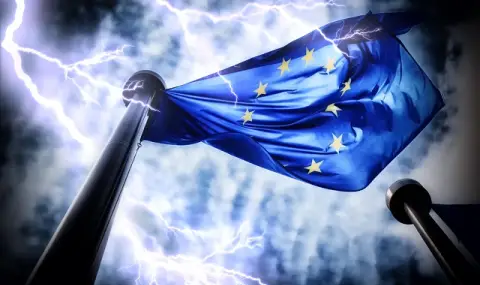It's not just Mexico, Canada and China: Donald Trump has also threatened the EU with punitive tariffs. What should Europeans prepare for and can Brussels do something?
Donald Trump is not kidding. First, he imposed a 25 percent tariff on imports from neighboring countries Mexico and Canada, as well as a ten percent tariff on imports of energy products from Canada. Goods from China will be taxed an additional ten percent. The tariffs on Mexico and Canada were subsequently postponed, but the drastic decisions of the new American president also raise concerns among Europeans, notes ARD.
What threats are there?
There is no doubt that Trump may soon impose new trade tariffs on EU exporters in order to put pressure on the Community. According to him, the European Union has behaved very badly towards America, which had a huge trade deficit with the EU. “So we are going to do something very serious with the EU”, Trump announced without giving details. His tone regarding the UK was a little more moderate: “The UK is not behaving well, but I think that can be clarified”.
Before taking office, Trump talked about tariffs of up to 20 percent on European products, such as German cars or French delicacies, ARD recalls. The Republican has long been annoyed that European companies export more goods to the US than the US sells to the EU. Last November, the EU achieved a nearly €19 billion surplus in trade with the US - €4.4 billion more than two years earlier.
Germany, by far the US's most important European trading partner, would likely be hit hardest by the tariffs.
How do the tariffs already imposed affect Germany?
The tariffs on Canada, Mexico and China are also hitting German carmakers hard - although analysts believe that US car companies will suffer even more, we read further in the ARD publication. And the consequences still remain unclear, since in accordance with Trump's negotiating tactics, the upcoming talks may lead to concessions from the three trading partners and the United States - in their interest.
„Volkswagen", „Audi" and „BMW" have factories in Mexico, „Mercedes-Benz" produces jointly with „Nissan" to serve mainly the American market. However, the factories of „Volkswagen", „Audi" and „BMW" in the United States are also affected, since many of the parts are produced in Mexico.
In addition, there is a threat of the so-called „secondary effect" - if Canada, Mexico and China are weakened in terms of economic activity by export losses, it can be expected that demand for European goods in these countries will decrease.
What countermeasures has the EU announced?
Tariffs cause unnecessary economic obstacles, stimulate inflation and harm all countries, said an EC spokesman. Europe will respond decisively to any economic partner that unfairly or arbitrarily imposes tariffs on goods. “As a strong economic area, we can respond to customs policies with customs policies”, said German Chancellor Olaf Scholz. “We must do this and we will do it.”
But while these counter-threats are still rather vague, Brussels has for some time signaled a willingness to make concessions, in particular with its readiness to buy more liquefied gas from the United States. Trump, for his part, also mentioned a compromise that could prevent the imposition of tariffs: he called on EU partners to import "large quantities" of oil and natural gas from the United States.
What happened last time?
Experts point out that Trump's team is more determined and better prepared this time than during his previous term. However, based on experience so far, it is clear that the US president would not have much interest in a trade war with the EU now either.
Negotiations during Trump's first term between 2017 and 2021 ultimately resulted in extraordinary tariffs on certain quantities of steel and aluminum from the EU. However, they were suspended until the end of March after an agreement with his successor in office, Joe Biden. If the compromise is not renegotiated, both the American surcharges and the European counter-tariffs that Brussels selectively imposed on Harley-Davidson motorcycles and bourbon whiskey will come into effect again in April.
The EU member states will now have to make political and economic concessions to Trump's goals in order to achieve the "deal" he favors. The short-term agreement in the deportation dispute with Colombia, thanks to which the 25 percent tariffs on Colombian goods were lifted, was probably registered with interest in Brussels, writes ARD.
Along with increased oil and gas imports, Europeans could also offer to buy more American weapons. The pressure could also be eased by the willingness of European concerns to increase their production in the United States.
